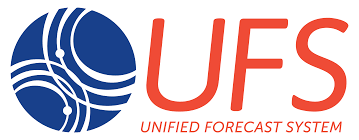The First Annual UFS Physics Workshop
May 16-18, 2023 | NCAR Foothills Laboratory (FL2), Boulder, CO
Workshop Motivation
The Unified Forecast System (UFS) Physics Working Group is tasked with developing and steering future direction for UFS physics development. As the UFS has become available to both research and operation communities for applications and its further development is underway, it is now timely for the UFS Physics Working Group to start organizing annual UFS Physics Workshops to discuss the latest advances in research and development that should be considered in further UFS physics development and implementation to address research and operation needs of the UFS community.
This First Annual UFS Physics workshop aims to provide a comprehensive overview of the latest developments in cloud microphysics research and provide a platform for scientists, researchers and students who are interested in UFS physics development to exchange ideas and collaborate on new UFS physics development projects. The workshop will feature oral presentations on state-of-the-art research and development that can help address questions about how best to parameterize physical processes and represent the hydrological, radiative, and dynamical impacts of clouds and precipitation across an increasing range of UFS applications, from the global to the convective scales. The scope of presentations and breakout discussions will include the following important themes relevant to the transition of research to operation in the UFS development:
- What is the minimal complexity in cloud and precipitation microphysics parameterizations required for all operational UFS applications?
- Is a unification in the UFS cloud and precipitation microphysics parameterizations possible for all operational UFS applications?
- How do we efficiently and consistently represent the microphysical impacts of sub- grid heterogeneous clouds across all UFS applications, particularly in the “gray zone”?
- How do we efficiently and consistently represent aerosol-cloud interactions in convection and microphysics parameterizations?
- How do we evaluate and improve the operational forecast of mixed-phase clouds, especially in the mid- and high-latitudes?
- How do we use observations to diagnose/evaluate and constrain parameterized cloud and precipitation processes in the UFS?
- What should be included in a research-grade version of the UFS microphysics scheme?
Overall, this First Annual UFS Physics Workshop offers a unique opportunity for participants to expand their knowledge about the needs for the microphysical aspect of cloud and precipitation physics development in the UFS and to connect with other researchers in the field. It will provide participants with the opportunity to reach a consensus on a list of recommendations to the UFS project offices and community for further microphysics development in the UFS.
 Agenda
Agenda - Workshop Organization Committee Members
- Jian-Wen Bao, OAR/PSL | Jian-Wen.Bao@noaa.gov
- Fanglin Yang, NCEP/EMC | Fanglin.Yang@noaa.gov
- Georg Grell, OAR/GSL | Georg.A.Grell@noaa.gov
- James Doyle, NRL | James.Doyle@nrlmry.navy.mil
- Greg Thompson, JCSDA | gthompsn@ucar.edu
- Ligia Bernardet, OAR/GSL | Ligia.Bernardet@noaa.gov
- Lisa Bengtsson, OAR/PSL | Lisa.Bengtsson@noaa.gov
- Hendrik Tolman, NWS/OSTI | Hendrik.Tolman@noaa.gov
- Neil Jacobs, UFS/SC | NJacobs@ucar.edu